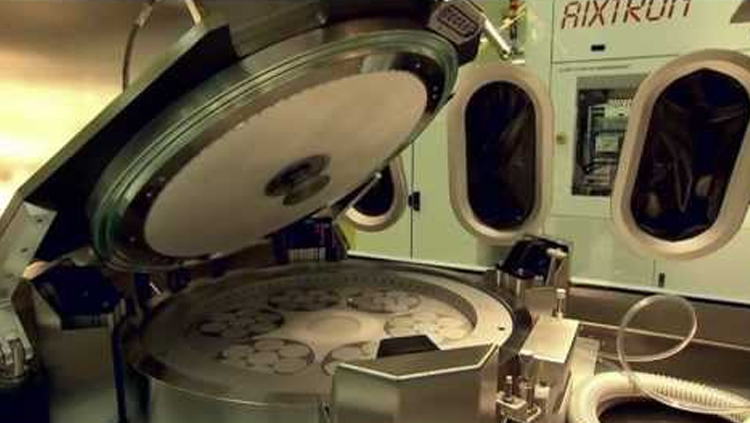US SunShot initiative a boost for CIGS focused SoloPower

SoloPower Systems has announced that it is collaborating with the US Photovoltaic Manufacturing Consortium (PVMC) as a strategic technology partner. Under the agreement, PVMC will provide specialised technology services to SoloPower Systems to develop thin-film solar.
SoloPower Systems' CTO Chris Eberspacher commented on the DoE opportunity: "Our collaboration with PVMC will accelerate the commercial manufacturing ramp-up at Systems' factory in Portland, and will support the continuing advancement of our products. We look forward to this partnership which will not only expand our thin-film production capabilities, but also serve to ensure SoloPower technology remains a leader in this market."
Created as part of the US Department of Energy's SunShot Initiative, PVMC has extensive experience and know-how in photovoltaic technologies, including roll-to-roll copper indium gallium selenide (CIGS) PV technology, in both research laboratory and industrial production environments. CIGS-based thin-film uses layers of semiconductor materials that are only a few micrometers thick; the materials can be deposited on solid or flexible lightweight substrates, offering capabilities that are more versatile than traditional solar panels. This technology could also prove to be more cost-effective to produce in high-volume.
"We are excited that interest in the U.S. Photovoltaic Manufacturing Consortium continues to grow, further supporting PVMC's mission to power the research, development, and deployment of sustainable, solar energy-focused solutions," said Chief Operating and Technology Officer of PVMC Pradeep Haldar. "We welcome SoloPower to the consortium where they will be able to tap into advanced solar energy research and expertise to enable high-tech innovation, which continues to be fueled by New York Governor Andrew Cuomo's commitment to developing next generation, clean energy technologies."
PVMC is also developing roadmaps and standards to forge industry consensus and address broad issues related to power electronics, module advancements, building integration, testing, and reliability. Additionally, it offers a proving ground for innovative solar technologies and manufacturing processes.


































